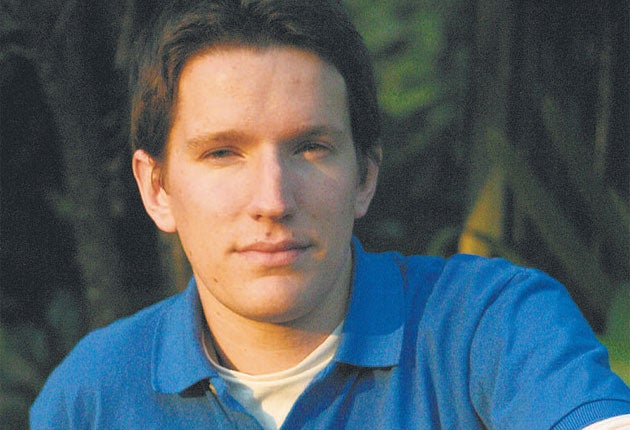Postgrad Lives: My thesis seeks to empower African societies

Matt Crowcombe, co-founder of an educational charity called SOS Africa, is doing a PhD in politics at Swansea University, focusing on the role of transitional justice in post-conflict African societies.
How did you come to do this PhD?
After earning a first degree in history and politics at Swansea, I stayed on to do a Masters in politics and international relations, which included a dissertation on the role of amnesty in post-apartheid South Africa. I was offered funding to do a PhD, focusing on the role of transitional justice in post-conflict societies. In my thesis, I’m designing three truth-commission frameworks that can be used by societies to help prevent the recurrence of past atrocities and achieve peace.
Are you looking at any specific countries as part of your work?
The thesis uses Zimbabwe as a present-day case study. I went there last year and interviewed citizens from across the society. I remember walking into a farmhouse and seeing faded bloodstains on the doorstep and bullet holes in the living-room walls, caused by a recent war veteran attack. I also spoke to NGO workers, human rights activists, and journalists. I’ve also been to Tanzania where I sat in on court hearings at the UN’s International Criminal Tribunal for Rwanda, where I heard victims of genocide give evidence.
Tell us a bit about the charity.
SOS Africa was co-founded as a result of a gap year teaching placement at the International School of South Africa in Mafikeng, in the north-west of the country. The school is near a large shanty town; what I saw there shocked me more than I could have imagined. The township schools often have class sizes of around 200, and one teacher told us most of the children in her class would be destined to lives of begging and prostitution. I, and a fellow teacher at the school, decided we would do something to prevent this suffering. We thought the only way to help break the cycle of poverty was through providing education. My family began by paying for the education of one boy and, when I returned home, I established the UK office of SOS Africa.
How big is the charity now?
We currently fund the education and care of 10 children, but these numbers will increase thanks to a huge amount of financial support in recent months. We got great publicity when SOS Africa was invited to be a partner in a charity programme run by Hyundai, linked to the World Cup in South Africa. I went there to help distribute 5,000 footballs and 50 football kits to townships around the country. The charity is run entirely by volunteers; every penny raised or donated goes towards paying for the futures of the SOS children in South Africa.
How do the PhD and the SOS Africa charity overlap?
Both my thesis and the charity were motivated by my experiences travelling across Southern Africa. I realised I was in a position where I could help contribute towards the development of this troubled society and its people. Therefore, my thesis and SOS Africa have sought to achieve this, but in different ways. My thesis seeks to empower African societies through transitional justice, and SOS Africa seeks to empower African societies through education.
Join our commenting forum
Join thought-provoking conversations, follow other Independent readers and see their replies
Comments
Bookmark popover
Removed from bookmarks